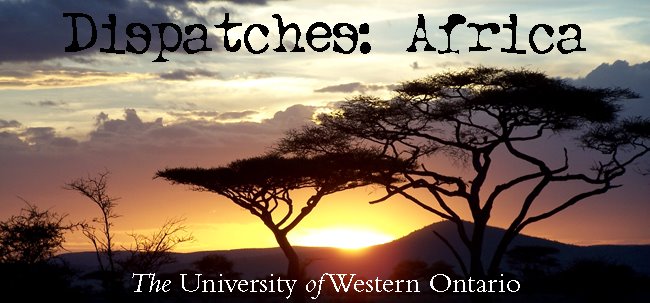 Nyungwe National Park, Rwanda – For three and a half hours, I was inundated with wave after wave of Kinyarwanda, and was successful in fishing out about 10 words. And yet, it was still a pretty cool afternoon.
Nyungwe National Park, Rwanda – For three and a half hours, I was inundated with wave after wave of Kinyarwanda, and was successful in fishing out about 10 words. And yet, it was still a pretty cool afternoon.Invited to the annual celebration of Nyungwe National Park, I sat under an orange tarp erected on jagged sticks as various dignitaries, including the local mayor, park warden and director general of ORTPN recapped the past year’s successes and paved the path for the coming year. In between speakers, a song about Nyungwe played on the sound system, and many people sang along. The crowd of about 200 people included members of the community, park rangers, military, KCCEM and ORTPN.
During one intermission, we were entertained by traditional Intore dancers, who swept across the ground, bells ringing from their ankles. It was a real treat, particularly from a cultural perspective. Professional Rwandan Intore dancers routinely win international competitions, though the group we saw today were still young. Another intermission featured a morality play about plundering from the environment.
As with any good Rwandan event, a sumptuous feast was served and, by the end of the day, crate after crate of empty soda and beer bottles were carted away. One opportunistic child located a half-finished bottle of Amstel in one of the red plastic crates and took a couple long tugs.
By the conclusion of the formal programme, everyone – men in suits and in full army gear – got up and began dancing to local music, Rihanna and Celine Dion – whom I’ve heard absolutely everywhere I’ve travelled. Unfortunately.
I felt fortunate to have experienced it.












































